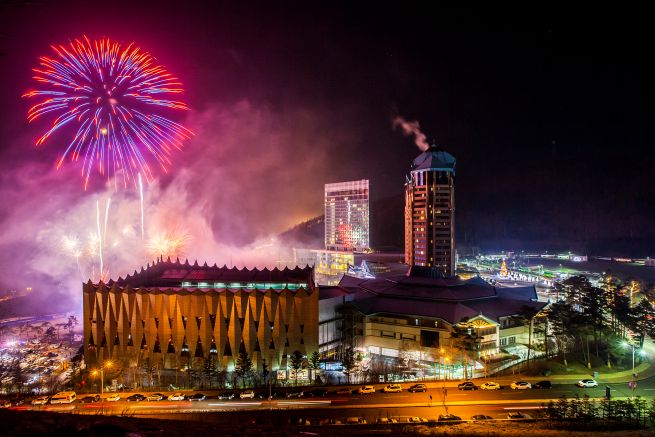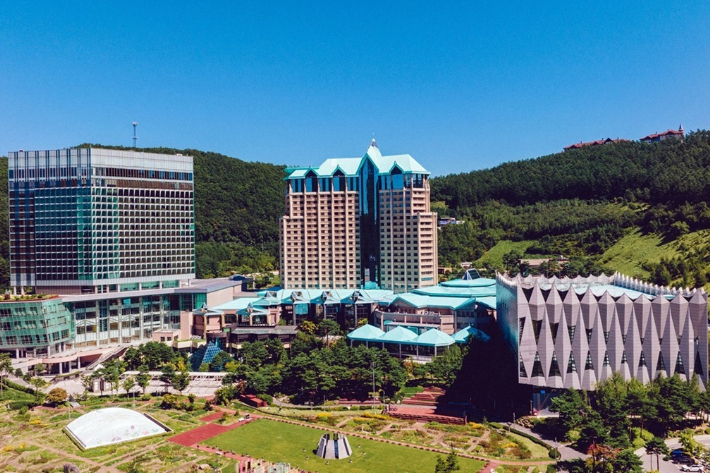

High1 Resort in Jeongseon County, Gangwon Special Self-Governing Province, South Korea. The resort features a wide range of facilities, including ski slopes, a water park, a casino, a petting zoo, wildflower fields, and an alpine botanical garden. (Image courtesy of Kangwon Land)
JEONGSEON, Aug. 26 (Korea Bizwire) – Kangwon Land, South Korea’s only casino open to domestic players, is seeking ways to strengthen its global competitiveness as Japan prepares to open a multibillion-dollar integrated resort in Osaka by 2030 — a development that analysts say could siphon millions of Korean tourists and billions of dollars in spending abroad.
The state-run casino operator announced it will join a two-day forum in Osaka beginning August 27 to study Japan’s integrated resort strategy and explore policy and business responses. The event, organized by the Korea Casino Tourism Association and the Korea Tourism Society, will gather about 50 officials, academics, and industry experts to discuss the likely impact of Japan’s resort on regional tourism and Korea’s casino sector.
Experts warn that the Osaka project, backed by roughly 10 trillion won ($7.4 billion) in investment, could draw 7.6 million Korean visitors annually and drain as much as 2.6 trillion won in domestic spending. Southeast Asian nations such as Singapore, Vietnam, and the Philippines have already seen casino development boost tax revenues, jobs, and tourism.

Kangwon Land Casino (Image courtesy of Kangwon Land)
At the forum, Kangwon Land’s acting casino chief Han Geum-seok is expected to stress the need for regulatory easing to help Korea compete. The company is advancing its own “K-HIT Project 1.0,” a staged plan to transform its facility into a world-class integrated resort by 2032, including landmark attractions, wellness offerings, and a leisure and sports complex.
“Korea’s casino and tourism industry faces a pivotal test,” Kangwon Land’s acting CEO Choi Cheol-gyu said in a statement on Sunday. “Through phased innovation strategies like K-HIT, we aim to secure competitiveness, revitalize the mining region economy, and strengthen Korea’s global standing in integrated resorts.”
Ashley Song (ashley@koreabizwire.com)


AloJapan.com